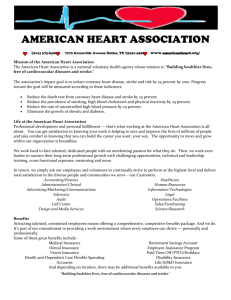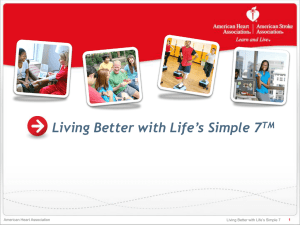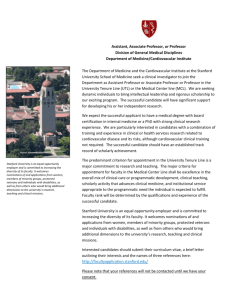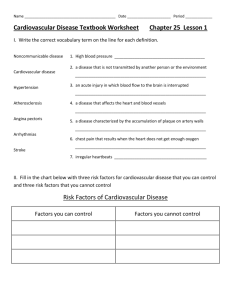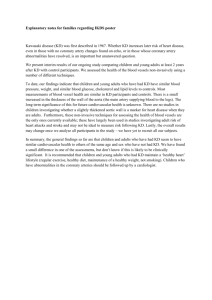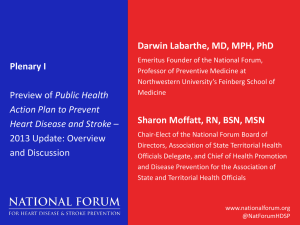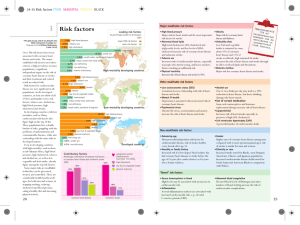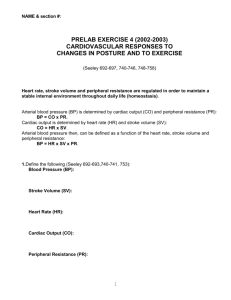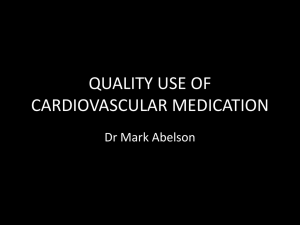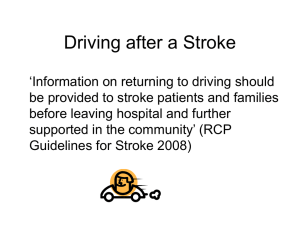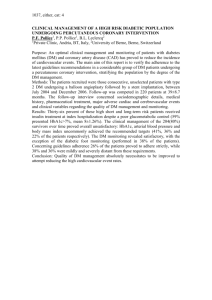Dear Colleagues,
advertisement
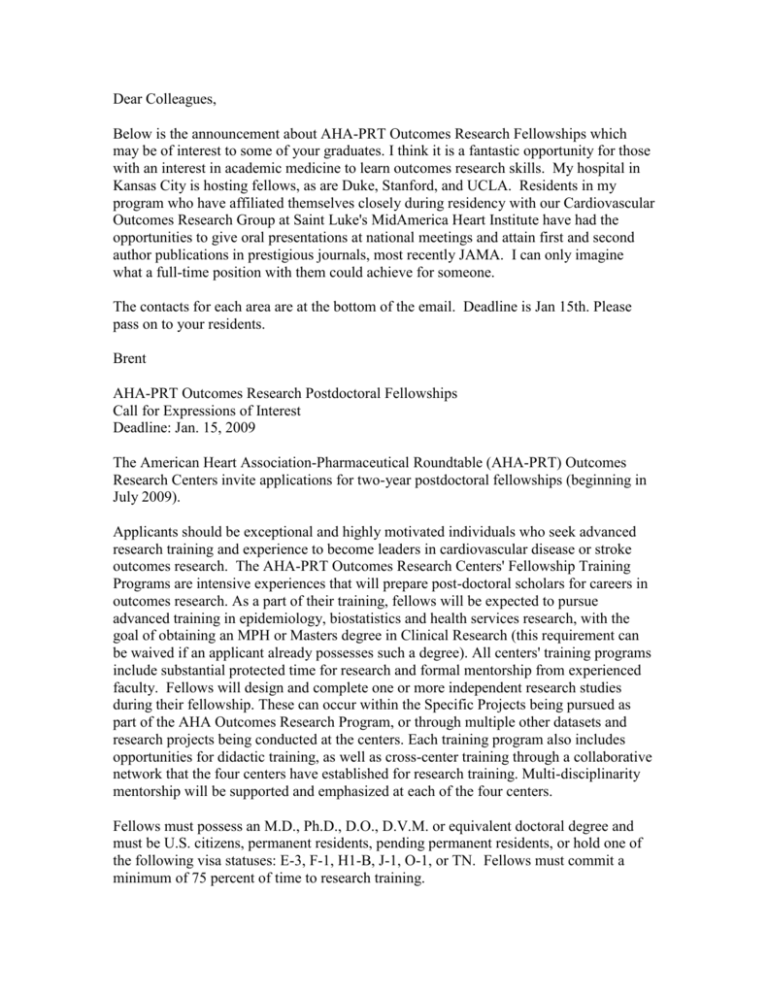
Dear Colleagues, Below is the announcement about AHA-PRT Outcomes Research Fellowships which may be of interest to some of your graduates. I think it is a fantastic opportunity for those with an interest in academic medicine to learn outcomes research skills. My hospital in Kansas City is hosting fellows, as are Duke, Stanford, and UCLA. Residents in my program who have affiliated themselves closely during residency with our Cardiovascular Outcomes Research Group at Saint Luke's MidAmerica Heart Institute have had the opportunities to give oral presentations at national meetings and attain first and second author publications in prestigious journals, most recently JAMA. I can only imagine what a full-time position with them could achieve for someone. The contacts for each area are at the bottom of the email. Deadline is Jan 15th. Please pass on to your residents. Brent AHA-PRT Outcomes Research Postdoctoral Fellowships Call for Expressions of Interest Deadline: Jan. 15, 2009 The American Heart Association-Pharmaceutical Roundtable (AHA-PRT) Outcomes Research Centers invite applications for two-year postdoctoral fellowships (beginning in July 2009). Applicants should be exceptional and highly motivated individuals who seek advanced research training and experience to become leaders in cardiovascular disease or stroke outcomes research. The AHA-PRT Outcomes Research Centers' Fellowship Training Programs are intensive experiences that will prepare post-doctoral scholars for careers in outcomes research. As a part of their training, fellows will be expected to pursue advanced training in epidemiology, biostatistics and health services research, with the goal of obtaining an MPH or Masters degree in Clinical Research (this requirement can be waived if an applicant already possesses such a degree). All centers' training programs include substantial protected time for research and formal mentorship from experienced faculty. Fellows will design and complete one or more independent research studies during their fellowship. These can occur within the Specific Projects being pursued as part of the AHA Outcomes Research Program, or through multiple other datasets and research projects being conducted at the centers. Each training program also includes opportunities for didactic training, as well as cross-center training through a collaborative network that the four centers have established for research training. Multi-disciplinarity mentorship will be supported and emphasized at each of the four centers. Fellows must possess an M.D., Ph.D., D.O., D.V.M. or equivalent doctoral degree and must be U.S. citizens, permanent residents, pending permanent residents, or hold one of the following visa statuses: E-3, F-1, H1-B, J-1, O-1, or TN. Fellows must commit a minimum of 75 percent of time to research training. Following are descriptions of AHA-PRT Outcomes Centers and research projects. Duke University Center Theme Improving transitional care for patients with coronary disease, myocardial infarction and heart failure Overview Our three proposed research initiatives each focus on “transitional” care concerns. These include the transition from hospital to home following acute myocardial infarction or following admission for heart failure. We also will study system challenges brought on in the transfer of ST-segment elevation myocardial infarction patients for timely reperfusion therapy. Additionally, our studies focus on identifying specific aspects of care that were both associated with better care process and outcomes and were, importantly, amenable to change. Initial Research Projects Project A: Evaluate innovative strategies for encouraging self-management and lifestyle modification of cardiac risk factors following an acute myocardial infarction. Project B: Conduct an in-depth retrospective evaluation of Reperfusion of Acute MI in North Carolina Emergency Departments (RACE) program, to better characterize the process and system changes associated with this improvement; the impact of RACE on known racial disparities; and evaluate the impact of the program on overall patient outcomes such as all-cause mortality. Project C: Examine heart failure, a condition characterized by a very high rate of ‘recurrent failures’, death or rehospitalizations. The project’s goal is to identify patient care and system factors that can reduce patients’ risk for early death or recurrent hospitalization. For more information, see attached description. Mid America Heart Institute, Kansas City, Mo. Center Theme Developing novel strategies to translate individualized, patient-centered, risk prediction models into the process of routine clinical care and to evaluate the appropriateness of patients being treated with percutaneous coronary interventions (PCI). Overview The major foci of the Mid America Heart Institute outcomes research program are patient-centered care and outcomes, quality assessment/improvement, translation of evidence-based care into practice, and economic and decision analyses. Over the past decade, the Mid America Heart Institute team has significantly contributed to many of the current methods for quantifying and analyzing patient-centered health status outcomes, assisted in the development of performance measurement as a means for quality assessment/improvement, applied the methods of cost-effectiveness and decision analysis to novel cardiovascular technologies and led numerous prospective registries to define patient and treatment characteristics associated with clinical outcomes in coronary atherosclerosis, heart failure and vascular disease. One of the key objectives of the AHA PRT Outcomes training program at the Mid America Heart Institute is to augment the traditional clinical research training with additional, specialized skills in outcomes research and quality improvement. Initial Research Projects Specific projects being supported by the AHA Outcomes Research Program include developing novel strategies to translate individualized, patient-centered, risk prediction models into the process of routine clinical care in patients undergoing PCI and developing the methodology to study the appropriateness of PCI. For more information, see attached description. Stanford University - Kaiser Permanente of Northern California Center Theme Defining and delivering optimal therapy for ischemic heart disease and chronic heart failure in routine clinical practice Overview The goal of the Stanford-Kaiser Outcomes Research Center is to assess the longitudinal effectiveness and safety of cardiovascular pharmacological and device therapies for coronary disease and heart failure in usual clinical care settings. Initial Research Projects The Stanford-Kaiser Center includes two primary projects that will use a detailed longitudinal clinical registry of patients with specific cardiovascular conditions. Both projects will assess the variation in the use and outcomes of therapies according to patient factors and system factors and will benefit from efforts in the Center to improve the methods used in outcomes research, particularly in advancing the state-of-the-art approaches to evaluating treatment comparisons in observational studies. Project A: Examine the use and related clinical outcomes and costs of various therapeutic options for coronary heart disease. Project B: Examine the longitudinal use and associated clinical outcomes of different pharmacological and device therapies used for chronic heart failure. For more information, see attached description. University of California, Los Angeles Center Theme Reducing stroke occurrence and improving stroke outcomes in vulnerable populations Center Overview The UCLA Center will assess those neighborhood-level determinants of cardiovascular disease and stroke that need to be addressed by institutional, community, or public health interventions aimed at eliminating disparities in cardiovascular disease and stroke outcomes. Initial Research Projects The Center is conducting two research studies to address the overarching goal of obtaining new knowledge on ways to reduce the occurrence and improve outcomes of stroke, focusing on high-risk, underserved populations: Project A: Develop and implement a new model for improving risk factor control in stroke survivors in the Los Angeles County public health system, a safety-net system for an ethnically diverse, indigent population in this large urban area. Project B: Generate new knowledge about the impact and mechanisms of neighborhood socioeconomic disadvantage on stroke occurrence, care, and a broad range of post-stroke outcomes based on data from the Cardiovascular Health Study (CHS), a large populationbased, longitudinal study of coronary heart disease and stroke in adults 65 years of age and older. For more information, see attached description. Applicants should contact the appropriate person below for additional application procedures. Deadline for all candidates is Jan. 15, 2009. Duke University Durham, North Carolina Contact: Eric Peterson, M.D., M.P.H. c/o Patsy Clifton, Program Coordinator 2400 Pratt St, Room 7009 Duke Clinical Research Institute (DCRI) Durham, NC 27514 Phone: (919) 668-8744 E-mail: patsy.clifton@duke.edu Mid America Heart Institute Kansas City, Missouri Contact: John Spertus, M.D., M.P.H. (Center Director) and Mikhail Kosiborod MD (Training Director) 5th Floor Mid America Heart Institute 4401 Wornall Road Kansas City, MO 64111 Phone: (816) 932-5475 Fax: (816) 932-5613 E-mail: mkosiborod@cc-pc.com. Stanford University-Kaiser Permanente of Northern California Stanford, California and Oakland, California Contact: Mark Hlatky, M.D. c/o Elaine Steel Stanford University School of Medicine HRP Redwood Building, Room 150 Stanford, CA 94305-5405 Phone: (650) 723-6426 E-mail: steel@stanford.edu University of California, Los Angeles Los Angeles, California Contact: Barbara Vickrey, M.D., M.P.H. c/o Eliza Aceves UCLA Dept of Neurology C-109 RNRC; Box 951769 Los Angeles, CA 90095-1769 Phone: (310) 206-7671 Fax: (310) 794-7716 E-mail: eaceves@ucla.edu
